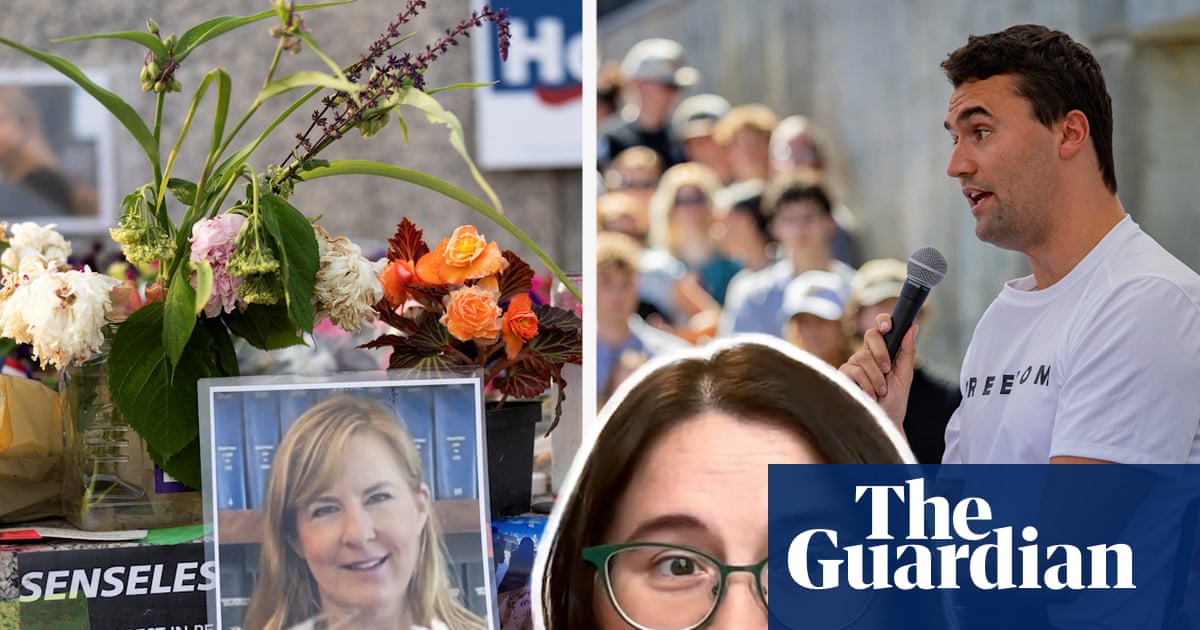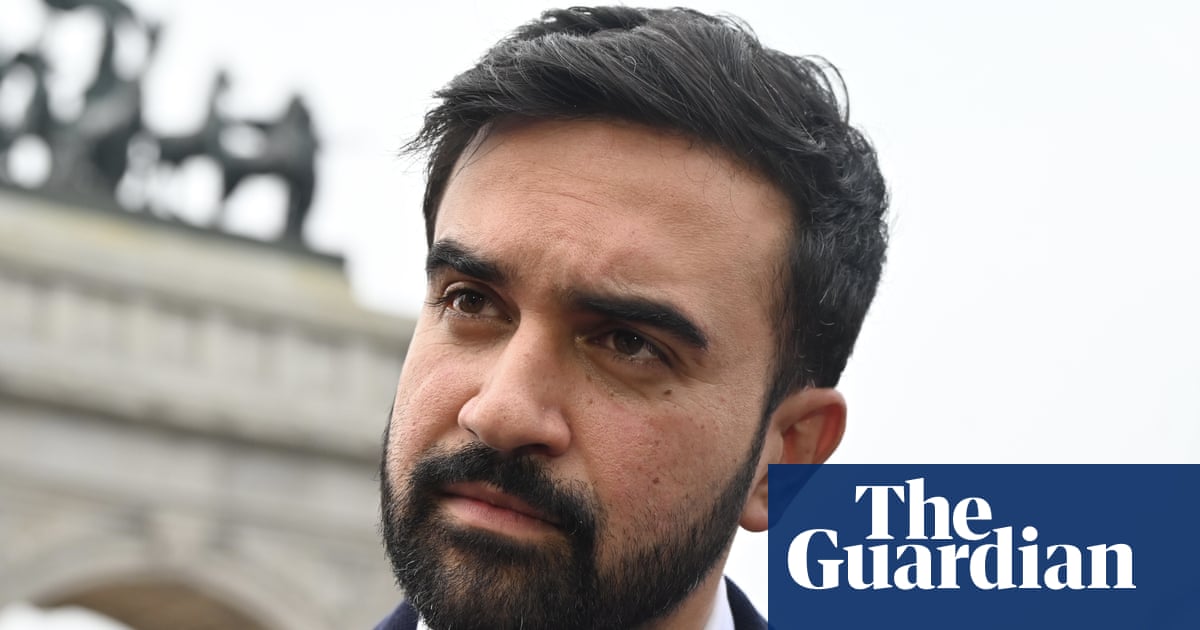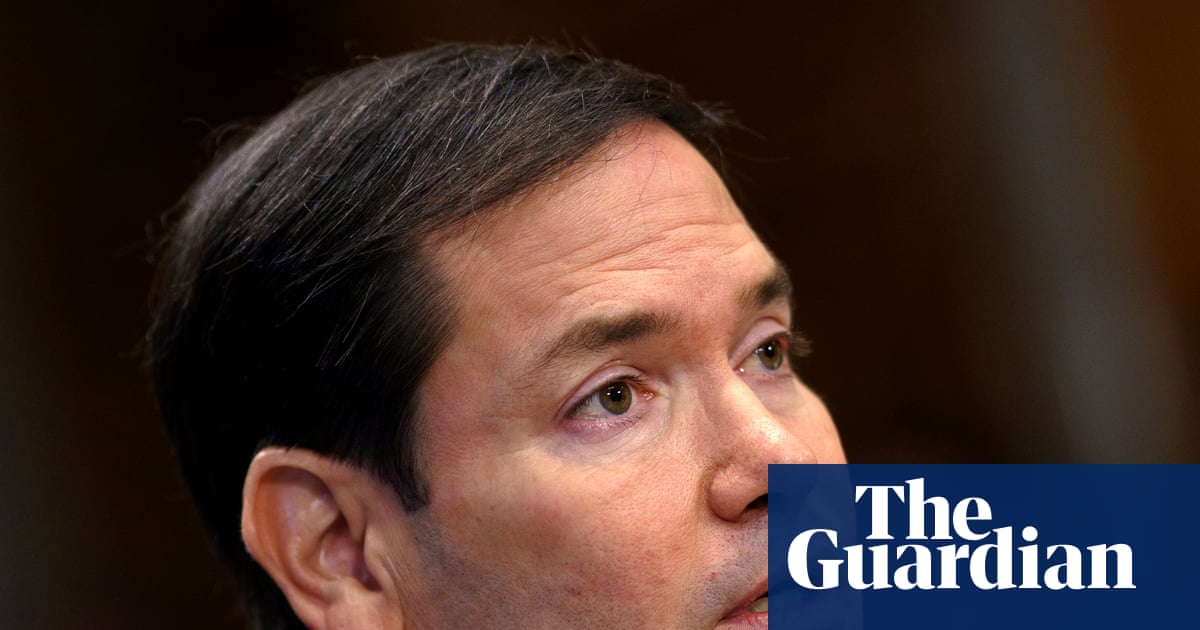Progressives in the UK and US are grappling with the same question. Why have rightwing populists become so much more successful at tapping into public concern? And why are so few politicians on the left connecting with ordinary people?
Barely a year after taking power in Britain, Labour’s popularity has collapsed with an unprecedented rapidity against surging support for Nigel Farage’s Reform UK.
In the US, a year after Joe Biden’s defeat, the Democrats are still derided by swathes of voters and remain at loss for how to take on Donald Trump’s unique brand of politics.
But while Labour and the Democrats languish in nationwide polls, there are exceptions. In New York over the summer, Zohran Mamdani rose from little-known assembly member to social media sensation and heavily favoured Democratic nominee in November’s mayoral contest.
His success in the Democratic primary comes on the back of a highly impactful people-powered campaign, which looks likely to propel him to victory. A poll for the New York Times this week concluded that Mamdani held a commanding lead over his three rivals for the mayoralty in November, including the scandal-hit incumbent Eric Adams and multimillionaire former governor Andrew Cuomo.
What if anything, can Labour learn from his success?
It’s the economy, stupid
Political observers in the UK believe Labour has a communications problem. But for good comms, you need substance. For Mamdani, that has come in the form of a laser-sharp focus on the economy and affordability.
According to the NYT/Siena poll this week, 49% of likely voters thought Mamdani would perform the best on affordability issues, compared with 23% who said the same of Cuomo and 10% for Adams.
“Elections are almost always about very, very fundamental things,” said Matthew McGregor, the chief executive of 38 Degrees who is a former digital adviser to Ed Miliband and worked as a digital campaign strategist in Barack Obama’s 2012 campaign.
“Mamdani has got an agenda that clicks with people’s real lived experience of a city that has become just farcically expensive, doesn’t work for working-class people, and where there is very stark inequality between people in the boroughs and the rich parts of Manhattan,” he said.
“He’s highlighted the cost of living and affordability, and that’s right – that is the major issue that’s bothering Americans,” argued Claire Ainsley, a former Labour policy chief who now runs the centre-left renewal project at the Progressive Policy Institute, a US thinktank. “Even if inflation is under control, cost of living is a big problem.”
By comparison, Labour’s first year in power has been characterised by constantly changing policy priorities. Before and after being elected, Starmer has variously talked about his six first steps, six “milestones”, five “missions” and three “foundations”.
Most recently, the prime minister has sought to reset his government by announcing a “phase two” focused on delivery, including the economy – but for many Labour MPs these constantly shifting priorities betray a frustrating lack of vision that makes it difficult to connect with the public.
Champion compelling, costed policies
With his focus on affordability, Mamdani has identified the key problem for many New Yorkers. Crucially, he is also presenting clear and compelling solutions.
His policies include free bus transport, a rent freeze on the city’s 2.3m regulated apartments, a crackdown on bad landlords and commercial rent control, free childcare for parents starting at six months, and a $30 minimum wage by 2030.
“His answers aren’t ‘Have you read through my 12-page white paper on breaking down planning so we can get New York building again?’ It’s not ‘We’re going to make work pay by encouraging businesses to invest.’ It’s ‘We’re going to make buses free, we’re going to fill in the grocery deserts,’” said McGregor. “Practical, meaningful things that people can grasp and understand.”
Mamdani is seeing off criticism about the feasibility of his promises by setting out clearly how they will be paid for – imposing a 2% tax on the top 1% of residents earning more than $1m annually, and raising New York City’s top corporate tax rate from 7.25% to match neighbouring New Jersey’s at 11.5%.
For its part, Labour is implementing a whole slate of progressive policies that are very popular with voters – strengthening renters’ and workers’ rights, including a ban on fire-and-rehire practices, increasing the minimum wage, cutting down hospital waiting lists and making it easier to see a GP.
The trouble is, these are not being properly championed. Ministers seem reluctant to bang the drum for some of their most popular moves, sometimes for fear of angering business. Last year, Downing Street disowned a press statement that branded P&O Ferries a “rogue operator” for past fire-and-rehire practices after the firm threatened to pull out of an investment summit.
Craft an overarching story – and pick a side
David Axelrod, a former strategist to Obama who then advised Ed Miliband in 2015, memorably said that Labour’s campaign failed because it could be summed up with: “Vote Labour, win a microwave.”
after newsletter promotion
His point was that Labour in 2015 offered voters a set of loosely connected transactional promises but lacked any overarching narrative. Many believe this is a problem plaguing the current Labour government and a key to explaining the success of Donald Trump in the US and Nigel Farage in the UK.
Both Trump and Farage have clear narrative stories to tell about the problems of the country and their proposed solutions. So does Mamdani. “He wants to be a politician that says this whole system isn’t working, and we’re going to change things in a bigger way. Politics is a vibes-based business in the modern media environment, and everything you do is a demonstration of whose side are you on,” said McGregor.
He added: “I think you can learn from Mamdani without saying we have to be more leftwing. Those policies need to connect to that bigger story that you’re telling. Farage is telling a story, and Trump is telling a story, and Mamdani is telling a story about the country, its challenges and problems and who’s to blame for them.”
That final point – picking a side and identifying your adversaries – is key. “We on the centre left are great at being rather po-faced, rational, logical, and establishing ourselves inadvertently as the defenders of the status quo that most people hate,” said Ed Owen, a former UK government special adviser during the New Labour years who is now a visiting fellow at the centre-left US thinktank Third Way.
“We are in a period of history where people’s faith in politics and politicians is at an all-time low. Insurgent political figures like Mamdani, and also on the right, are good at positioning themselves as agents of change.”
Even when you tick all those boxes – a focus on people’s biggest concerns, popular policies and a compelling overarching narrative – you need a way to cut through to the public, including to voters who don’t follow politics closely.
Mamdani is a hugely talented communicator who has built a huge presence on social media. His masterful campaign videos and direct, easy style are shared with a whopping 1.4 million followers on TikTok and 4 million on Instagram. Unlike most politicians, at 33 he is a social media native.
“These TikTok videos, I think, are a really compelling and interesting manifestation of something,” said McGregor. “Understanding the modern media environment and the fact that huge swathes of people consume information in completely different ways to how they did five, 10, let alone 20 years ago.”
The decline of traditional media means many voters only consume news through snippets on their social media feeds. The only UK politician with a major TikTok presence is Farage – he rivals Mamdani’s reach with 1.3 million followers.
Despite the efforts of successive No 10 comms chiefs, the UK government has been slow at adapting to new forms of communication – though Starmer and other ministers are increasingly popping up on alternative platforms such as digital-only outlets and parenting podcasts.
“We’ve got to be able to communicate where people are – and that’s increasingly on social media channels – in the form they want,” said Owen. “And we’ve been really bad at it.”
Be an authentic local voice
Mamdani is a very New York success story – and one that observers say can’t be simply copy-pasted to the UK or other parts of the US. “It isn’t as if this is some sort of template you can just transpose to any political environment,” said Owen.
“If there is a lesson to be drawn, it’s about the importance of authentic candidates that speak to the voters that you need,” Ainsley said. “Clearly, his victory has energised parts of the left, but they are not representative of the mainstream of America, that is where the midterms and the next presidential election will be fought.”
“He’s played to the base that he needed, which is a narrow selectorate in New York City. He’s got conviction, and one of the things that the swing voters who’ve moved away from the Democrats over time have said to us is that they want politicians with conviction – but they also want candidates that have got the competence and credible policies that they think are going to meet their everyday needs.”

 German (DE)
German (DE)  English (US)
English (US)  Spanish (ES)
Spanish (ES)  French (FR)
French (FR)  Hindi (IN)
Hindi (IN)  Italian (IT)
Italian (IT)  Russian (RU)
Russian (RU)  3 hours ago
3 hours ago
























Comments